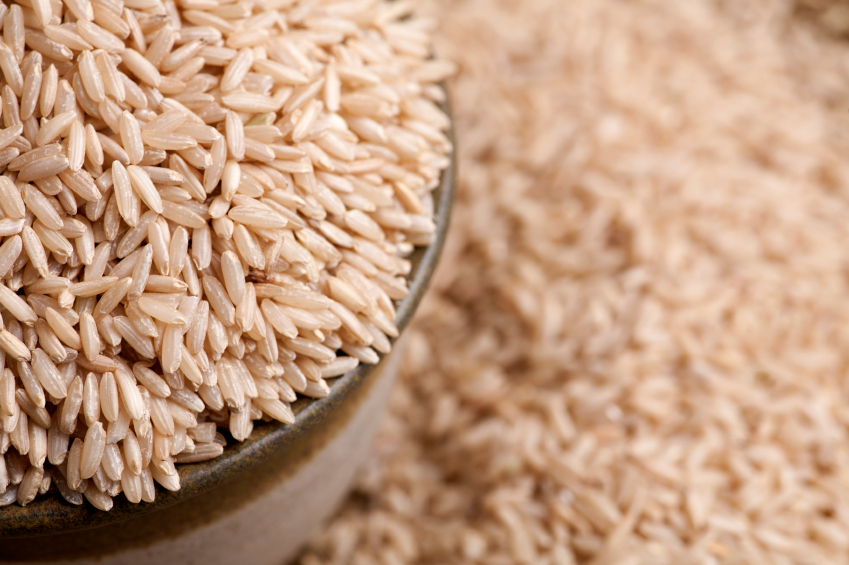we delivers enough to blog about

Nutrition for weight loss: Carbohydrates
By Nick Hall
This is part 2 on nutrition for weight loss. This article covers the misconception about carbs, how the right type of carbs can assist with weight loss and the type of carbs that assist in weight gain.
The misconception about Carbohydrates
We’ve been lead to believe that we should cut or reduce carbs out of our diet. We also hear on TV and magazines how people have cut or reduced carbs out of their diet and lost weight fast. We should however look to reduce or eliminate the wrong or bad types of carbs out of our diet and include more of the right type of carbohydrates from live plant food.
Fruit and vegetables
Your nutrition e-book contains a detailed breakdown of the different type of fruit and vegetables and the benefits they provide. In brief, you are best to chose from a wide variety of coloured vegetables as the different colours contain different nutrients and antioxidants.
Nutrient dense but low in energy
Fruit and vegetables contain a large amount of nutrients however a usually low in calorie density for their size. Fruit and vegetables can therefore increase the feeling of fullness by adding more size to the meal without adding a great deal of extra calories.
The fibre in vegetables slows the digestion process and therefore release of sugar into the blood stream is a lot slower. This helps in keeping blood sugar and insulin levels more stable
Energy dense Carbohydrates
Energy dense carbohydrates as the name suggests contain a large amount of energy within a small serving size. Examples are bread, rice, pasta, oats, potatoes, bananas, sugar etc. The main types of energy dense carbs I’ll focus on first are the processed carbs
High in Energy, Low in Nutrients
Carbohydrates such as bread and pasta are highly processed and if made from wheat, contain gluten. A large portion of the population is sensitive to gluten or gluten intolerant which can cause digestion problems which can then lead to weight gain. This topic will be discussed in more detail in the digestion seminar.
Processed carbohydrates and sugar can become addictive. They contain a large amount of energy in only a small serve. The level of processing reduces the nutrient level and in some cases, synthetic nutrients are later added into the product.
Processed carbohydrates can enter the blood stream quickly resulting in sharp blood sugar and insulin spikes. If this high amount of energy is not utilised it will then be stored as fat.
Blocks Satiety Signals
Processed or refined carbs tend to block the satiety or fullness signals. It can take much longer for the brain to recognise that carbs are being consumed compared to protein or good fats. Processed carbs can also be addictive. They can make you feel good if you are in a depressed state. Bad gut bacteria also thrive on processed sugar.
High Fructose Corn Syrup (HFCS)
HFCS is a cheaper substitute for sugar. It’s manufactured from corn, however contains little nutritional value. HFCS can put stress on the liver during the digestion process and will also lead to high blood sugar and insulin spikes. HFCS is commonly used in yoghurt, salad dressing, low fat ice cream, processed breakfast cereal, tomato soup, crackers, sweet biscuits, potato chips.
Corn can also be fed to livestock which we can then consume. HFCS is not widely used in Australia however check the ingredients list to make sure on each package. If you avoid packaged, processed foods you’ll avoid HFCS
Unrefined, energy dense carbohydrates
There are times when energy dense carbs can benefit us such as after an intense bout of exercise. Our muscles required quick release energy in order to restore depleted muscle glycogen levels and increase our blood sugar levels which can fall during times of intense exercise. The types of carbs you want to choose in this instance are unrefined or unprocessed carbs.
Unrefined, unprocessed carbs
Brown rice, quinoa, steal cut or rolled oats are easier for our bodies to metabolise and more nutritional than more traditional types of energy dense carbohydrates such as bread and pasta. They have higher amounts of protein and amino acids and enter the blood stream slower which will help keep insulin levels more stable. Potatoes, sweet potato and Bananas are another source of energy dense, unrefined carbs. Consumption of these carbs are best suited to immediately after a training session.
Conclusion
Including a variety of fibrous plant food (fruit or vegetables) with each meal is key. This helps increase your level of satiety and will also help keep blood sugar levels stable. Minimise your consumption of potatoes and bananas as they are energy dense and spike blood sugar a lot quicker than other fruits and vegetables.
Processed carbohydrates or packaged foods should be eliminated, again they are energy dense and converted to blood sugar quickly. Carbohydrates such as brown rice, quinoa, steal cut oats, potatoes and bananas should be reserved for consumption after a training session to assist in replacing depleted glycogen stores.
References:
Mercola, Dr J. Insulin and it’s Metabolic Effects. Mercola.com.
Mercola, Dr J. New Revelations Support Diet and Exercise to Reverse Leptin Resistance, Thereby Promoting a Healthy Weight. Mercola.com.
Kirpitch, A, Maryniuk, M. The 3 R’s of Glycemic Index: Recommendations, Research and the Real World. American Diabetes Association.